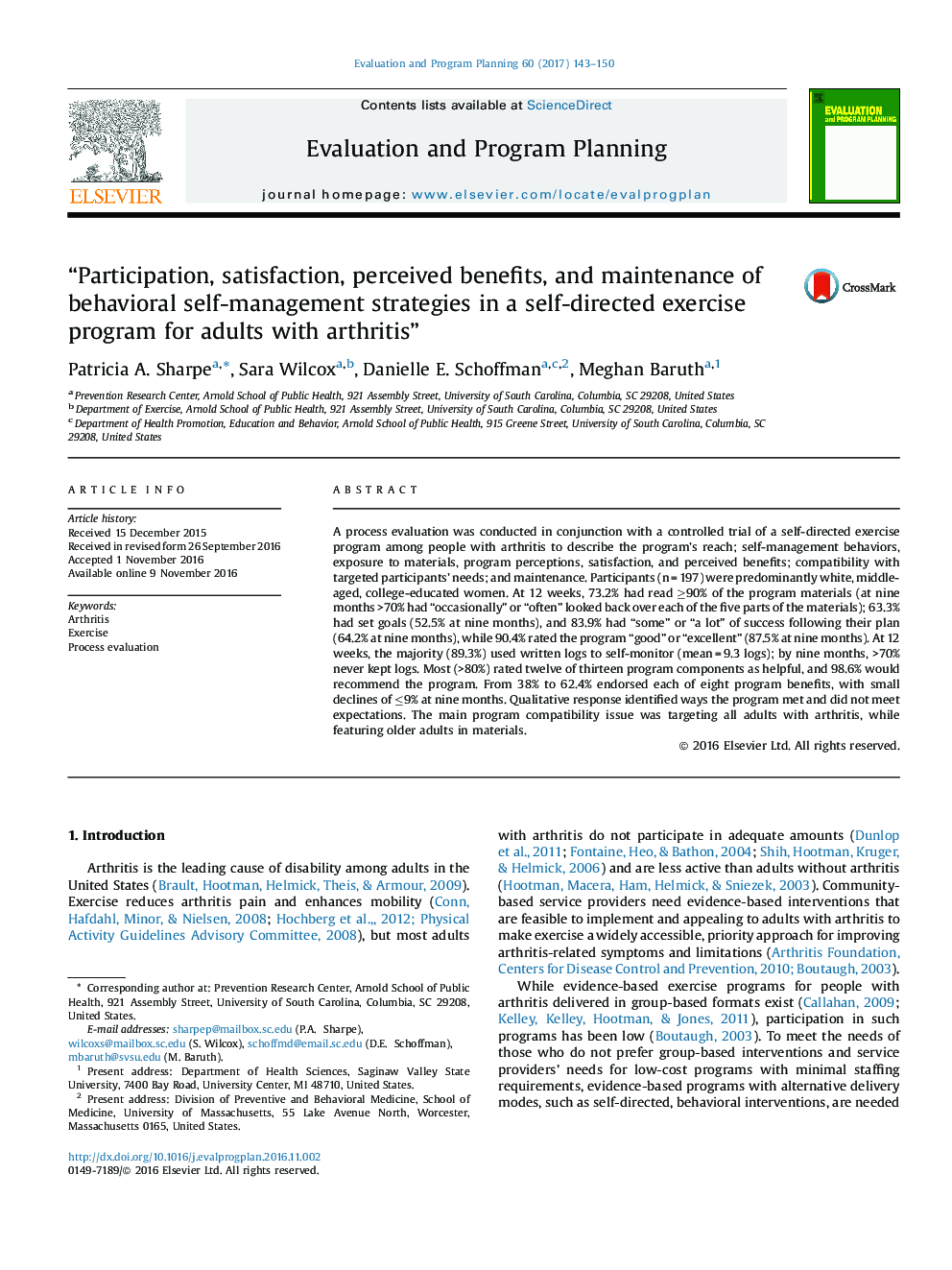| Article ID | Journal | Published Year | Pages | File Type |
|---|---|---|---|---|
| 4930985 | Evaluation and Program Planning | 2017 | 8 Pages |
Abstract
A process evaluation was conducted in conjunction with a controlled trial of a self-directed exercise program among people with arthritis to describe the program's reach; self-management behaviors, exposure to materials, program perceptions, satisfaction, and perceived benefits; compatibility with targeted participants' needs; and maintenance. Participants (n = 197) were predominantly white, middle-aged, college-educated women. At 12 weeks, 73.2% had read â¥90% of the program materials (at nine months >70% had “occasionally” or “often” looked back over each of the five parts of the materials); 63.3% had set goals (52.5% at nine months), and 83.9% had “some” or “a lot” of success following their plan (64.2% at nine months), while 90.4% rated the program “good” or “excellent” (87.5% at nine months). At 12 weeks, the majority (89.3%) used written logs to self-monitor (mean = 9.3 logs); by nine months, >70% never kept logs. Most (>80%) rated twelve of thirteen program components as helpful, and 98.6% would recommend the program. From 38% to 62.4% endorsed each of eight program benefits, with small declines of â¤9% at nine months. Qualitative response identified ways the program met and did not meet expectations. The main program compatibility issue was targeting all adults with arthritis, while featuring older adults in materials.
Keywords
Related Topics
Health Sciences
Medicine and Dentistry
Public Health and Health Policy
Authors
Patricia A. Sharpe, Sara Wilcox, Danielle E. Schoffman, Meghan Baruth,
